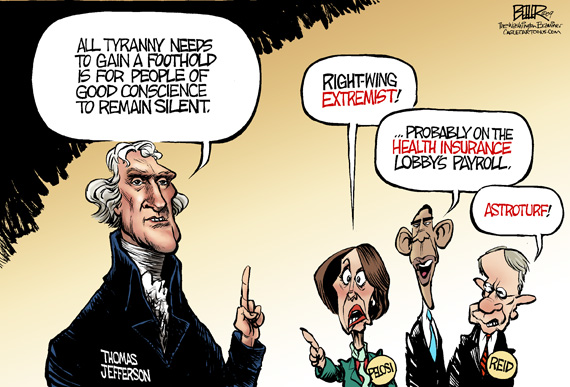- Joined
- May 19, 2009
- Messages
- 28,721
- Reaction score
- 6,738
- Location
- Redneck Riviera
- Gender
- Female
- Political Leaning
- Moderate
Who Lied? Who told the truth?
Health Care Summit Squabbles | FactCheck.org
Health Care Summit Squabbles | FactCheck.org
■Sen. Lamar Alexander said premiums will go up for “millions” under the Senate bill and president’s plan, while President Barack Obama said families buying the same coverage they have now would pay much less. Both were misleading. The Congressional Budget Office said premiums for those in the group market wouldn’t change significantly, while the average premium for those who buy their own coverage would go up.
■Alexander also said “50 percent of doctors won’t see new [Medicaid] patients.” But a 2008 survey says only 28 percent refuse to take any new Medicaid patients.
■Sen. Harry Reid cited a poll that said 58 percent would be “angry or disappointed” if health care overhaul doesn’t pass. True, but respondents in the poll were also split 43-43 on whether they supported the legislation that is currently being proposed.
■Obama repeated an inflated claim we’ve covered before. He said insured families pay about $1,000 a year in their premiums to cover costs for the uninsured. That’s a disputed figure from an advocacy group. Other researchers put the figure at about $200.
■Sen. Tom Coburn said “the government is responsible for 60 percent” of U.S. health spending. But that dubious figure includes lost tax revenue due to charitable contributions to hospitals and other questionable items. The real figure is about 47 percent.
■Reid said “since 1981 reconciliation has been used 21 times. Most of it has been used by Republicans.” That’s true, but scholars say using it to pass health care legislation would be the most ambitious use to date of this filibuster-avoiding maneuver.
■Rep. Charles Boustany said the main GOP-backed bill would reduce premium costs by “up to about 10 percent.” According to CBO, that’s true for the small group market, which accounts for only 15 percent of premiums. But premiums in the large group market would stay the same or go down by as much as 3 percent.

